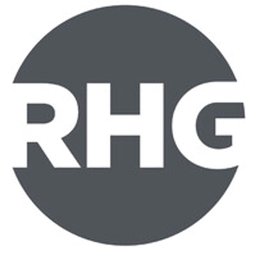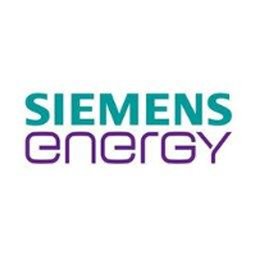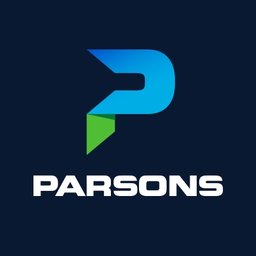Job Opportunities in Saudi Arabia
September 14, 2024
Saudi AZM
الرياض
FULL TIME
Senior Business Analyst
Role Overview:
A Senior Business Analyst is responsible for leading the analysis and design of business processes, systems, and strategies to enhance organizational efficiency and effectiveness. This role involves working closely with stakeholders to identify business needs, gather and document requirements, and translate them into functional solutions that align with the organization's strategic goals. The Senior Business Analyst also plays a key role in mentoring junior analysts and ensuring that business analysis best practices are consistently applied across projects.
Key Responsibilities:
3- Strategic Evaluation: Evaluate potential strategies, model solutions, and provide informed recommendations to address business challenges.
4- Manage Business Sessions: Facilitate workshops, lead brainstorming sessions, and collaborate with cross-functional teams to gather requirements and generate solutions.
5- Business Documentation: Create BRDs, develop workflows, write user stories, and design diagrams to outline requirements and visualize processes.
6- Scope Management: Define, manage, and secure the project scope by establishing clear boundaries, managing change requests, and ensuring alignment with business objectives to prevent scope creep
7- Prototypes Follow-Up: Review prototypes, gather stakeholder feedback, and coordinate improvements with design and development teams.
8- Development Follow-Up: Monitor development progress, communicate with teams, conduct testing and validation, coordinate UAT, and refine the solution based on feedback.
10. Mentoring and Leadership:
11. Continuous Improvement:
1. Education:
2. Experience:
3. Certifications:
4. Technical Skills:
5. Soft Skills:
6. Personal Attributes:
Preferred Experience:
A Senior Business Analyst is responsible for leading the analysis and design of business processes, systems, and strategies to enhance organizational efficiency and effectiveness. This role involves working closely with stakeholders to identify business needs, gather and document requirements, and translate them into functional solutions that align with the organization's strategic goals. The Senior Business Analyst also plays a key role in mentoring junior analysts and ensuring that business analysis best practices are consistently applied across projects.
Key Responsibilities:
1- Business Process Analysis:
2- Business Understanding: Conduct research, perform benchmarking, and analyze business needs to identify improvement opportunities.
- Lead the analysis of existing business processes, systems, and workflows to identify areas for improvement.
- Develop and document detailed process flows, business requirements, and functional specifications.
- Conduct gap analyses to assess the alignment between current processes and desired future states.
3- Strategic Evaluation: Evaluate potential strategies, model solutions, and provide informed recommendations to address business challenges.
4- Manage Business Sessions: Facilitate workshops, lead brainstorming sessions, and collaborate with cross-functional teams to gather requirements and generate solutions.
5- Business Documentation: Create BRDs, develop workflows, write user stories, and design diagrams to outline requirements and visualize processes.
6- Scope Management: Define, manage, and secure the project scope by establishing clear boundaries, managing change requests, and ensuring alignment with business objectives to prevent scope creep
7- Prototypes Follow-Up: Review prototypes, gather stakeholder feedback, and coordinate improvements with design and development teams.
8- Development Follow-Up: Monitor development progress, communicate with teams, conduct testing and validation, coordinate UAT, and refine the solution based on feedback.
9. Project Management Support:
- Provide project management support, including the development of project plans, timelines, and status reports.
- Monitor project progress, identify potential risks or issues, and work with project teams to develop mitigation strategies.
- Ensure that projects are delivered on time, within scope, and within budget.
10. Mentoring and Leadership:
- Mentor and guide junior business analysts, providing training and support to help them develop their skills.
- Lead by example, promoting best practices in business analysis and ensuring adherence to organizational standards.
- Foster a collaborative and supportive work environment within the business analysis team.
11. Continuous Improvement:
- Stay updated on industry trends, emerging technologies, and best practices in business analysis.
- Identify opportunities for continuous improvement in business analysis processes, tools, and methodologies.
- Lead initiatives to implement improvements and ensure that they are effectively adopted across the organization.
1. Education:
- A Bachelor’s degree in Business Administration, Information Systems, Computer Science, or a related field.
- Saudi nationality is required.
2. Experience:
- Proven experience in leading business analysis for large, complex projects, preferably in multiple industries.
- Experience in specific industries (e.g., finance, healthcare, technology) where specialized knowledge is required.
- Familiarity with Agile methodologies and experience working in Agile environments.
- Experience in business intelligence (BI) and data analytics projects
3. Certifications:
- Certified Business Analysis Professional (CBAP) or equivalent certification is preferred.
- Additional certifications in project management (e.g., PMP) or Agile methodologies (e.g., Certified Scrum Master) are a plus.
4. Technical Skills:
- Business Process Modeling: Expertise in business process modeling techniques (e.g., BPMN, UML) and tools (e.g., Visio).
- Requirements Management: Proficiency in requirements management tools (e.g., Jira, Confluence) and methodologies.
- Data Analysis:Strong data analysis skills, with the ability to work with data modeling and reporting tools (e.g., Excel, Power BI, Tableau).
- Software Development Lifecycle (SDLC):Comprehensive understanding of the software development lifecycle, including Agile and Waterfall methodologies.
- Technical Documentation: Ability to create detailed technical documentation, including use cases, user stories, and functional specifications.
5. Soft Skills:
- Communication: Excellent verbal and written communication skills, with the ability to articulate complex concepts to diverse audiences.
- Problem-Solving:Strong problem-solving skills, with the ability to identify root causes and develop effective solutions.
- Analytical Thinking:High level of analytical thinking, with the ability to synthesize information and make data-driven decisions.
- Leadership:Strong leadership and mentoring skills, with the ability to guide and develop junior team members.
- Collaboration: Ability to work effectively in cross-functional teams, fostering a collaborative and inclusive environment.
6. Personal Attributes:
- High attention to detail, ensuring accuracy in analysis and documentation.
- Strong organizational skills, with the ability to manage multiple tasks and priorities simultaneously.
- Proactive and self-motivated, with a commitment to continuous learning and improvement.
- Adaptability and resilience in a dynamic work environment.
Preferred Experience:
- Experience in specific industries (e.g., finance, healthcare, technology) where specialized knowledge is required.
- Familiarity with Agile methodologies and experience working in Agile environments.
- Experience in business intelligence (BI) and data analytics projects.
We regret to inform you that this job opportunity is no longer available
Latest Job Opportunities
October 19, 2024
AL HADA CONTRACTING COMPANY
Civil Engineer (Saudi or Arab)
الرياض
FULL TIME
View Details
October 19, 2024
Mansard Riyadh, a Radisson Collection Hotel-Rooms
Nail Technician
الرياض
FULL TIME
View DetailsSimilar Jobs


September 10, 2024
John Wood Group
TPE IV- Senior Piping/Pipeline Engineer
الخبر
FULL TIME
View Details

September 8, 2024
Coastal Contracting Company
Senior Specialist - FrameCAD Assembly
تبوك
CONTRACT & FULL TIME
View Details